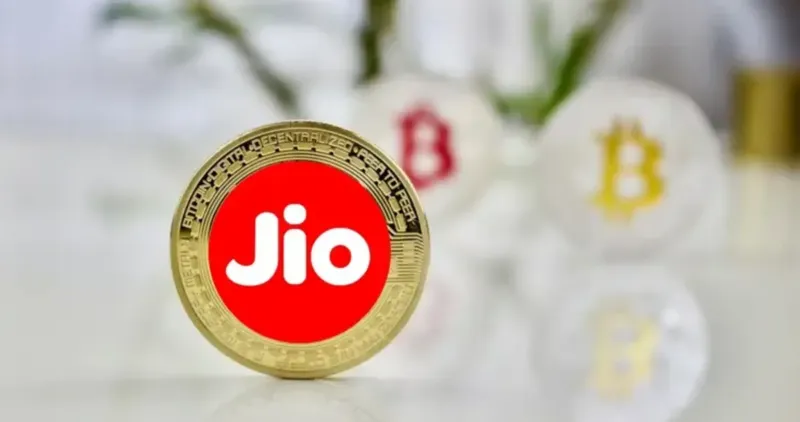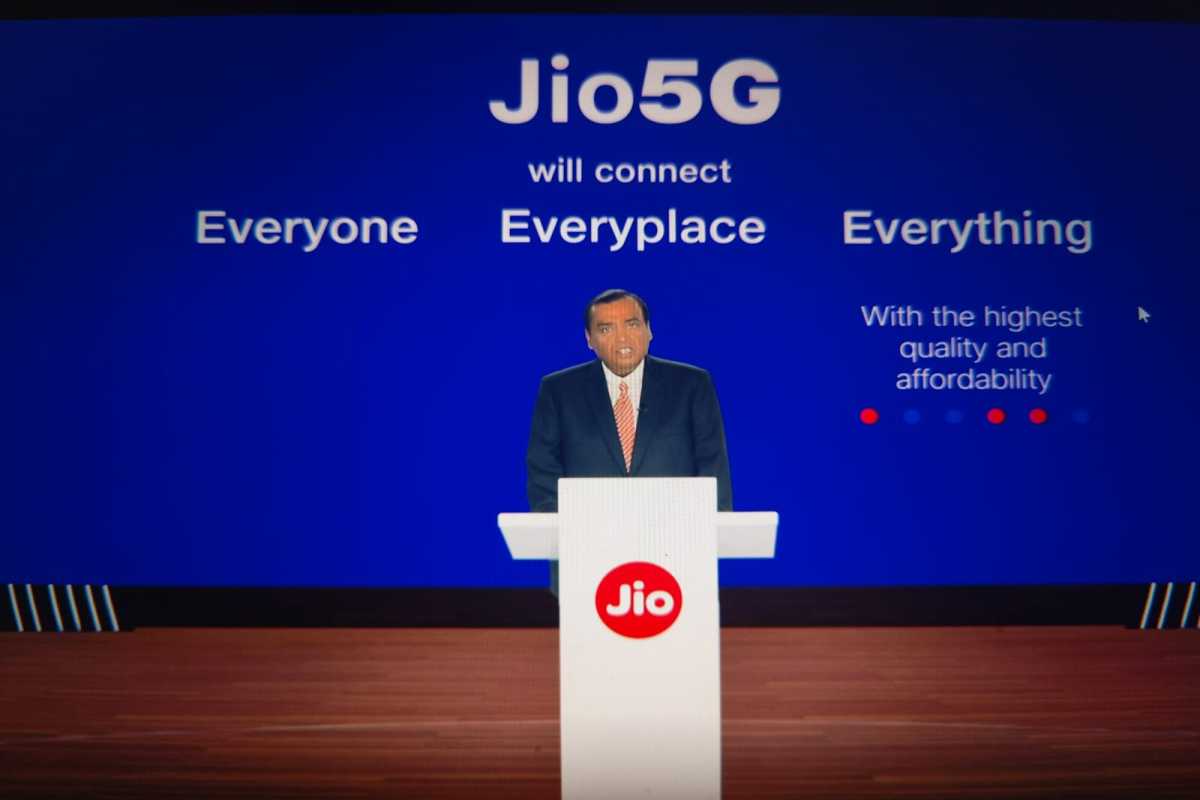India's richest man, Mukesh Ambani, chairman of Reliance Industries, has once again captured global attention by launching JioCoin, a groundbreaking digital token powered by the Polygon blockchain. Announced on January 16, 2025, this initiative marks Jio Platforms' official foray into the fast-evolving world of cryptocurrency. Designed to reward users of Jio's proprietary browser, JioSphere, the token has created significant buzz in both the blockchain and consumer tech communities.
This move highlights Ambani’s long-standing vision of embracing digital transformation and integrating advanced technologies into Reliance’s ecosystem. By partnering with Polygon Labs, Jio aims to expand its offerings in blockchain and Web3, setting the stage for a digital revolution in India.
To read our previous article about the lavish Ambani wedding - Click Here

The JioCoin Concept
At its core, JioCoin is a reward mechanism for users who browse the internet using JioSphere. Users earn tokens as they engage with the platform, creating a unique incentive model. However, the tokens are currently non-transferable and non-redeemable, sparking discussions about their long-term utility and value.
Despite the lack of immediate monetization options, JioCoin’s introduction is being seen as a stepping stone towards wider cryptocurrency adoption in India. With over 450 million Jio users, the initiative has the potential to educate a vast audience about digital currencies and blockchain technology.
Driving Blockchain Adoption in India
Mukesh Ambani has often emphasized the importance of digital technologies in India’s growth story. With the launch of JioCoin, Ambani is positioning Reliance Industries as a leader in blockchain innovation. The move aligns with the global trend of integrating blockchain into everyday applications, from financial services to supply chain management.

In a country where cryptocurrency remains largely misunderstood, JioCoin could serve as a catalyst for public awareness and acceptance. By embedding blockchain rewards into a widely-used platform like JioSphere, Jio is creating an environment where users can engage with the technology organically.
A Step Towards Financial Inclusion
India's digital ecosystem is rapidly expanding, but significant gaps in financial inclusion persist. JioCoin has the potential to bridge these gaps by providing an accessible entry point into decentralized finance (DeFi) for millions of Indians. In the future, JioCoins could be integrated into payment systems, loyalty programs, or even micro-lending platforms, further driving adoption.
Potential Applications of JioCoin
Although details about JioCoin’s full functionality remain under wraps, industry analysts are already speculating about its potential applications:
-
Integration with Reliance Services
JioCoin could eventually allow users to redeem tokens for services within the Reliance ecosystem, such as:- Mobile recharges via Jio.
- Discounts or purchases at Reliance Fresh stores and Reliance gas stations.
-
Loyalty and Reward Programs
The token could be used to power loyalty programs, rewarding users for engaging with Reliance’s extensive portfolio of products and services. -
Smart Contracts and Supply Chain
By leveraging blockchain technology, JioCoin could support smart contracts to automate agreements or streamline Reliance’s supply chain logistics. -
Decentralized Applications (dApps)
Experts speculate that Jio may launch dApps (decentralized applications) within its ecosystem, using JioCoin as the central currency. -
Future Token Transfers
While JioCoin is currently non-transferable, Reliance could introduce transferability in the future, allowing users to trade or sell tokens, further enhancing their utility.
Community Reactions and Criticism
Enthusiastic Reception
The launch of JioCoin has generated significant excitement, particularly among tech enthusiasts and Jio’s loyal user base. On social media platform X (formerly Twitter), users expressed curiosity about the integration of JioCoin into JioSphere. Several prominent figures in the crypto space, including Kashif Raza, CEO of Bitinning, speculated on its potential applications.
Concerns Over Transparency
However, not everyone is convinced. Critics like Sunil Aggarwal, a prominent crypto analyst, have raised questions about the transparency of JioCoin. Concerns include the absence of a block explorer or verified smart contracts on the Polygon network. Without such information, some view JioCoin as an experimental initiative rather than a robust cryptocurrency.
Comparisons with Brave Browser’s BAT
JioCoin has also drawn comparisons to Basic Attention Token (BAT), a blockchain-based reward system used by the Brave browser. While JioCoin operates on a similar premise—rewarding users for browsing—it lacks the established infrastructure and clarity of BAT. This has led sceptics to question whether JioCoin can deliver on its promises.
Regulatory Challenges
India’s Crypto Landscape
JioCoin’s launch raises critical questions about the regulatory environment for cryptocurrencies in India. The Indian government has adopted a cautious stance, with measures such as a 30% tax on crypto gains and a 1% tax deduction at source (TDS) on transactions. These policies have been criticized for stifling innovation in the blockchain space.
The Path Forward
Navigating these regulatory hurdles will be crucial for Reliance. Legal experts argue that clearer, more supportive policies are needed to foster blockchain adoption in India. As Reliance continues to explore the potential of JioCoin, its ability to operate within the existing framework will determine the project’s success.
Mukesh Ambani’s Vision
Mukesh Ambani’s vision for JioCoin goes beyond creating a simple reward token. By integrating blockchain into Jio’s ecosystem, Ambani aims to redefine consumer engagement in India. This initiative aligns with his broader goal of making India a global leader in digital technology.
In a statement, Ambani highlighted the potential of blockchain to “transform traditional business models” and “unlock new opportunities for financial inclusion.” His belief in the technology’s transformative power underscores the strategic importance of JioCoin.
The Road Ahead
As JioCoin takes its first steps, much remains uncertain. However, the initiative’s potential to reshape India’s digital currency landscape is undeniable. With a vast user base and a trusted brand, Jio has the resources to drive widespread adoption of blockchain technology.
The key to JioCoin’s success will lie in:
- Enhancing Transparency: Providing clear information about the token’s technical specifications and utility.
- Addressing Regulatory Challenges: Collaborating with policymakers to create a supportive environment for blockchain innovation.
- Delivering Real Value: Ensuring that users can derive tangible benefits from JioCoin, such as redeemable rewards or enhanced services.
Conclusion
Mukesh Ambani’s launch of JioCoin on the Polygon blockchain marks a significant milestone in India’s digital transformation journey. While challenges related to transparency and regulation persist, the project’s potential to democratize blockchain technology and foster financial inclusion cannot be overlooked.
As more details about JioCoin emerge, the world will be watching to see whether this ambitious initiative lives up to its promise. If successful, JioCoin could not only redefine consumer engagement in India but also position Reliance Industries as a global leader in blockchain innovation.
With inputs from agencies
Image Source: Multiple agencies
© Copyright 2024. All Rights Reserved Powered by Vygr Media.























